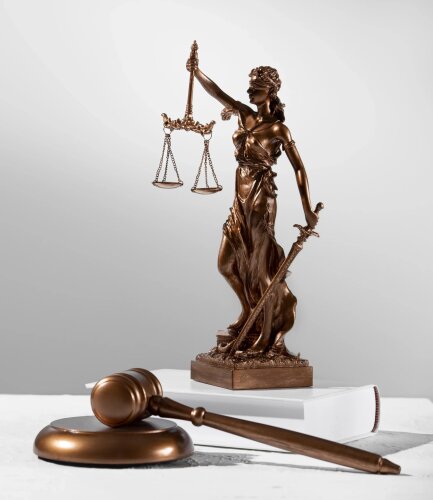Best ADR Mediation & Arbitration Lawyers in Portugal
Share your needs with us, get contacted by law firms.
Free. Takes 2 min.
Or refine your search by selecting a city:
List of the best lawyers in Portugal
About ADR Mediation & Arbitration Law in Portugal
Alternative Dispute Resolution (ADR), encompassing mediation and arbitration, serves as a prominent means of resolving disputes in Portugal. ADR offers an effective, efficient, and often less adversarial alternative to traditional court proceedings. Portugal has embraced ADR, aligning with international practices to facilitate both domestic and cross-border disputes. The Portuguese legal system encourages the use of mediation and arbitration as part of a broader commitment to alternative dispute resolution methods, offering parties more control over the resolution process and typically resulting in faster settlements than what might be achieved through traditional litigation.
Why You May Need a Lawyer
There are several situations where legal assistance in ADR mediation and arbitration might be necessary:
- Complex Disputes: Intricate disputes, especially those involving substantial financial stakes or cross-border issues, may benefit from legal expertise.
- Contractual Obligations: When contracts stipulate that disputes be resolved via mediation or arbitration, understanding the process is crucial.
- Expert Guidance: Lawyers experienced in ADR can offer strategic advice, guiding parties through negotiations to achieve the best possible outcome.
- Enforcement of Awards: Legal assistance might be needed to enforce or challenge an arbitration award.
- Drafting ADR Clauses: Professional help ensures clear and enforceable mediation or arbitration clauses in commercial contracts.
Local Laws Overview
Portugal's legal framework concerning ADR is comprehensive, supporting and regulating both mediation and arbitration. The key aspects include:
- Mediation Law: The Portuguese Mediation Law outlines procedures and guidelines to ensure fairness and efficiency, emphasizing voluntary participation and confidentiality.
- Arbitration Law: Portugal's Voluntary Arbitration Law (VAL) is closely aligned with the UNCITRAL Model Law on International Commercial Arbitration, enhancing Portugal's international arbitration profile.
- Recognition of Awards: Portugal is a signatory to the New York Convention, which facilitates the recognition and enforcement of foreign arbitrational awards.
- Judicial Support: Courts support ADR proceedings by offering assistance when needed and enforcing mediation agreements and arbitration awards.
Frequently Asked Questions
What is the difference between mediation and arbitration?
Mediation involves a neutral third-party facilitator who helps the disputing parties reach a mutually acceptable agreement. Arbitration, on the other hand, involves a neutral arbitrator who hears both sides' arguments and then makes a binding decision.
Is mediation compulsory in Portugal before going to court?
No, mediation is voluntary in Portugal. However, certain commercial contracts may include a mediation clause requiring mediation before pursuing litigation.
How are arbitrators selected in Portugal?
Parties involved in a dispute typically agree on an arbitrator. If they cannot agree, they may seek assistance from an arbitration institution to appoint a suitable arbitrator.
Are mediation and arbitration confidential in Portugal?
Yes, both processes are confidential. Details of the proceedings and any agreements reached are not disclosed to third parties.
How long does arbitration take in Portugal?
The duration of arbitration varies based on the complexity of the case, but it generally takes less time than court proceedings, often several months to a year.
Can arbitration awards be appealed in Portugal?
Arbitration awards are final and binding, with very limited grounds for appeal, typically related to procedural fairness or violations of public policy.
What costs are associated with ADR in Portugal?
Costs vary depending on the complexity and duration of the dispute, as well as the arbitrator’s fees. However, ADR often proves more cost-effective than litigation.
Do I need a lawyer for mediation in Portugal?
While not mandatory, having a lawyer can provide valuable legal advice and help represent your interests during mediation.
What types of disputes can be resolved through ADR in Portugal?
ADR can address a wide range of disputes, including commercial, civil, labor, family, and international matters.
Where can I find a mediator or arbitrator in Portugal?
Mediators and arbitrators can be appointed through various ADR centers and institutions in Portugal, such as the Commercial Arbitration Centre of the Portuguese Chamber of Commerce and Industry.
Additional Resources
For further assistance, you can reach out to the following resources:
- Centro de Arbitragem Comercial (CAC): Offers services for commercial arbitrations.
- Instituto de Mediação e Arbitragem de Portugal (IMAP): Provides information and services related to mediation and arbitration.
- Portuguese Ministry of Justice: Offers resources and information on ADR law and practice.
Next Steps
If you need legal assistance in ADR mediation or arbitration, consider the following steps:
- Consult with a lawyer specializing in ADR to discuss your situation and options.
- Review any existing contracts for ADR clauses that may dictate the process to follow.
- Contact a local ADR institution for further guidance and support in initiating proceedings.
- Prepare any necessary documents and evidence with legal counsel to support your case in mediation or arbitration.
Lawzana helps you find the best lawyers and law firms in Portugal through a curated and pre-screened list of qualified legal professionals. Our platform offers rankings and detailed profiles of attorneys and law firms, allowing you to compare based on practice areas, including ADR Mediation & Arbitration , experience, and client feedback.
Each profile includes a description of the firm's areas of practice, client reviews, team members and partners, year of establishment, spoken languages, office locations, contact information, social media presence, and any published articles or resources. Most firms on our platform speak English and are experienced in both local and international legal matters.
Get a quote from top-rated law firms in Portugal — quickly, securely, and without unnecessary hassle.
Disclaimer:
The information provided on this page is for general informational purposes only and does not constitute legal advice. While we strive to ensure the accuracy and relevance of the content, legal information may change over time, and interpretations of the law can vary. You should always consult with a qualified legal professional for advice specific to your situation.
We disclaim all liability for actions taken or not taken based on the content of this page. If you believe any information is incorrect or outdated, please contact us, and we will review and update it where appropriate.
Browse adr mediation & arbitration law firms by city in Portugal
Refine your search by selecting a city.















